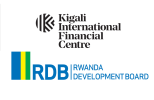Top Tips for Investing in African Startups
Investing in African startups presents a unique opportunity. It’s a chance to tap into a rapidly growing market, driven by innovation and a young, tech-savvy population.

Yet, it’s not without its challenges. Understanding the diverse economic environments across African countries is crucial. So is navigating local regulations and market dynamics.
This article aims to guide you through the process. It provides actionable advice for making informed investment decisions in this emerging market. It highlights the unique opportunities and challenges in the African startup ecosystem.
Whether you’re an experienced investor or just starting to explore emerging markets, you’ll find valuable insights here. This guide will help you understand the African startup landscape and its potential for high returns.
So, let’s dive into the world of African startup investing. Let’s explore the top tips for investing in African startups.
Understanding the African Startup Ecosystem
The African startup ecosystem is diverse and dynamic. It’s characterized by rapid growth and a high level of innovation, particularly in the tech sector.
Mobile technology plays a significant role in this growth. It’s driving innovation and startup success across the continent. This is largely due to a young, tech-savvy population that’s eager to embrace new solutions.
However, the ecosystem is not without its challenges. Infrastructure issues can affect startup operations and scalability. Government policies can either support or hinder startup growth.
Understanding these nuances is key to successful investing. It’s important to have a clear picture of the ecosystem before making investment decisions.
Key Sectors and Growth Opportunities
Several sectors in Africa present unique investment opportunities. These sectors are ripe for disruption and have the potential for high returns.
- Fintech
- Agriculture
- Healthcare
- Education
Fintech, in particular, has seen significant growth. This is largely due to the widespread use of mobile technology and the need for financial inclusion. Agriculture, healthcare, and education are also sectors where startups are making a significant impact. They are leveraging technology to address local challenges and improve service delivery.
Investing in these sectors requires a deep understanding of the market dynamics. It also requires an appreciation of the unique challenges and opportunities each sector presents.
The Importance of Due Diligence
Investing in African startups requires thorough due diligence. This includes understanding local regulations, market dynamics, and the startup’s business model.
Investors should also consider the startup’s management team. Their experience, skills, and commitment can significantly influence the startup’s success. It’s also crucial to assess the startup’s financial health and growth potential.
Due diligence can help mitigate risks and ensure a successful investment. It’s a critical step in the investment process that should not be overlooked.
Navigating Economic and Cultural Diversity
Africa is a continent of immense economic and cultural diversity. This diversity presents both opportunities and challenges for investors.
Understanding the economic landscape is crucial. Each country has its unique economic environment, influenced by factors like government policies, infrastructure, and market dynamics.
Cultural competence is equally important. Investors need to understand local customs, consumer behavior, and societal norms. This knowledge can help shape investment strategies and foster successful partnerships.
Leveraging Technology and Innovation
Technology is a key driver of innovation in African startups. Mobile technology, in particular, has revolutionized various sectors, from fintech to agriculture.
Innovation is not limited to tech startups. Traditional industries are also embracing technology, leading to disruptive business models and increased efficiency.
Investors can leverage this trend by investing in startups that harness technology to solve local challenges. Such startups often have high growth potential due to their ability to scale and replicate success across markets.
The Role of Local Partnerships and Networks
Local partnerships and networks play a crucial role in the African startup ecosystem. They provide startups with valuable market insights, mentorship, and access to resources.
Investors can benefit from partnering with local investors or investment firms. These entities have on-the-ground experience and understand the local market dynamics, regulations, and cultural nuances.
Moreover, diaspora networks and international development organizations also support African startups. They provide funding, mentorship, and networking opportunities, which can be instrumental in a startup’s success.
Impact Investing and ESG Considerations
Impact investing is gaining traction in Africa. Many African startups are mission-driven, aiming to address societal and environmental challenges.
Investors should consider Environmental, Social, and Governance (ESG) factors in their investment decisions. Startups that align with these principles often have sustainable business models and contribute positively to society.
Moreover, investing in startups addressing climate change and sustainability can offer significant returns. These sectors are ripe for disruption and innovation in Africa.
Mitigating Risks: Political Instability and Market Dynamics
Investing in African startups comes with its unique set of risks. Political instability can affect market dynamics and startup operations.
Currency fluctuations can also impact investment returns. It’s crucial to understand these risks and develop strategies to mitigate them.
Partnering with local investors or investment firms with on-the-ground experience can be beneficial. They can provide valuable insights into the local political and economic landscape.
Success Stories: Learning from What Works
There are numerous success stories in the African startup scene. These stories provide valuable lessons for potential investors.
Startups like Jumia, Africa’s first unicorn, and Flutterwave, a fintech giant, have shown that it’s possible to scale and attract international investment in Africa. They have navigated the unique challenges of the African market and emerged successful.
Studying these success stories can help investors understand what works in the African startup ecosystem and inform their investment strategies.
The Long-Term Investment Mindset
Investing in African startups requires a long-term perspective. The market dynamics in Africa are different from those in more developed economies.
Patience is key. It may take time for startups to overcome infrastructure challenges, navigate regulatory hurdles, and build market presence.
However, the potential for high returns is significant. With a long-term investment mindset, investors can tap into the immense growth potential of the African startup ecosystem.













































